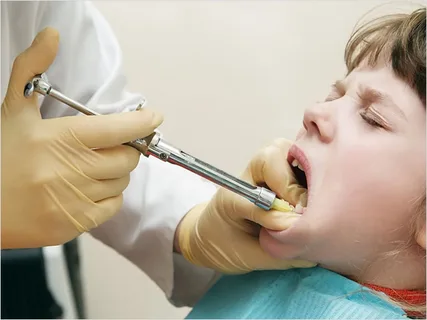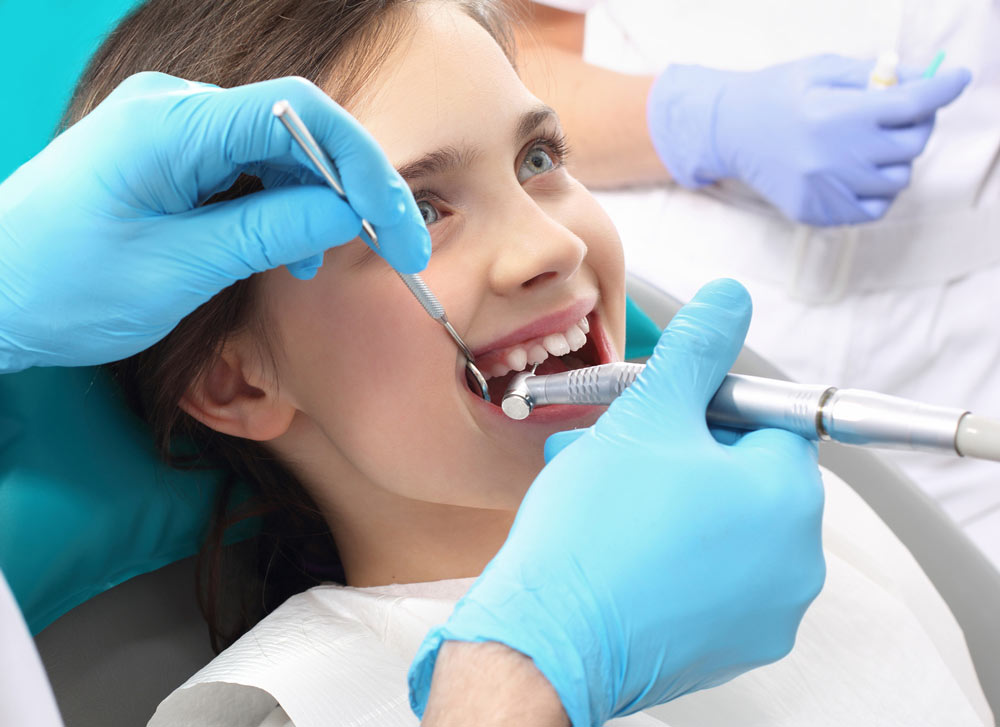TREATMENTS
Kids Dentistry Treatment in Lahore
Kids Dentistry
Kids dentistry, also known as pediatric dentistry, is a specialized branch of dentistry that focuses on the oral health and dental care of children, from infancy through adolescence. Pediatric dentists are dental professionals who have undergone additional training to address the unique needs and challenges associated with the dental care of young patients

- Functional Impairment
- Aesthetic Concerns
- Speech Difficulties
- Preventing Tooth Migration
- Preserving Bone Health
- Improving Oral Health
- List Item #1
- List Item #2
- List Item #3
Types Of Kids Dentistry

Pediatric Dental Anesthesiology
Pediatric dental anesthesiologists are trained to administer anesthesia to children undergoing dental procedures, ensuring their safety and comfort during treatments.

Pediatric Orthodontics
Pediatric orthodontics focuses on the diagnosis and treatment of malocclusions (misalignments of teeth and jaws) in children. Orthodontic interventions may include braces, aligners, and other appliances to correct dental and facial irregularities.

Pediatric Endodontics
Pediatric endodontists specialize in treating dental pulp and nerve-related issues in children. This may involve procedures such as root canal therapy for baby teeth to preserve them until they naturally fall out

Pediatric Dental Hygiene
Dental hygienists specializing in pediatric dentistry work with children to provide preventive care, including cleanings, fluoride treatments, and education on proper oral hygiene practices.
CAUSES OF KIDS DENTISTRY
Dentistry focused on providing oral health care to children. Pediatric dentistry is driven by the recognition of the unique needs and considerations associated with the dental care of infants, children, and adolescents.if you meant to inquire about the factors that lead to the need for pediatric dentistry or the common issues addressed in this field,
Early Childhood Caries
ECC is a severe form of tooth decay in young children, often linked to prolonged bottle-feeding, sugary snacks, and inadequate oral hygiene practices.
Injuries and Trauma
Accidents or sports-related injuries can lead to dental trauma in children, requiring prompt attention and treatment by pediatric dentists or oral surgeons.
Teething Discomfort
Pediatric dentists assist parents in managing teething discomfort in infants and toddlers, offering advice on teething toys and safe relief methods.
Preventive Care and Education
Pediatric dentistry focuses on preventive care, including regular check-ups, cleanings, and education on proper oral hygiene practices to prevent future dental issues.
KIDS DENTISTRY
Symptoms of Kids Dentistry
- Early Childhood Caries
- Malocclusions
- Gum Disease
- Tooth Eruption Issues
- Dental Injuries and Trauma
- Teething Discomfort
How To Take Care Missing Teeth
Taking care of your oral health, especially when you have missing teeth, is important to prevent complications and maintain overall well-being. Here are some tips on how to care for missing teeth:
Floss Regularly: Floss between your remaining natural teeth and around dental appliances to remove plaque and prevent gum disease. If you have dental bridges or implants, use floss threaders or interdental brushes for effective cleaning.
Use an Antiseptic Mouthwash: Rinse your mouth with an antiseptic or fluoride mouthwash to help control bacteria and maintain oral hygiene. Consult your dentist for recommendations based on your specific needs.
Visit Your Dentist Regularly: Schedule regular dental check-ups, even if you have missing teeth. Your dentist can monitor the health of your remaining teeth, assess your gum health, and address any concerns promptly.
Consider Dental Appliances If you have missing teeth, your dentist may recommend dental appliances such as bridges, dentures, or implants to restore function and aesthetics. Follow your dentist’s instructions for care and maintenance of these appliances.
FAQs
Pediatric dentistry is a specialized field of dentistry that focuses on the oral health of infants, children, and adolescents. Pediatric dentists are trained to address the unique needs of young patients.
The American Academy of Pediatric Dentistry recommends that a child should have their first dental visit by their first birthday or within six months of the eruption of their first tooth.
Baby teeth are crucial for proper chewing, speech development, and guiding the eruption of permanent teeth. They also contribute to the overall development of the jaw and facial structure.
Fluoride helps prevent tooth decay by strengthening tooth enamel. Pediatric dentists may recommend fluoride treatments or prescribe fluoride supplements based on the child's individual needs.
Parents can promote good oral hygiene by teaching children to brush and floss regularly, limiting sugary snacks and beverages, and scheduling regular dental check-ups.
Orthodontics addresses the alignment of teeth and jaws. Early orthodontic evaluation can help identify and address potential issues, leading to better long-term oral health.

